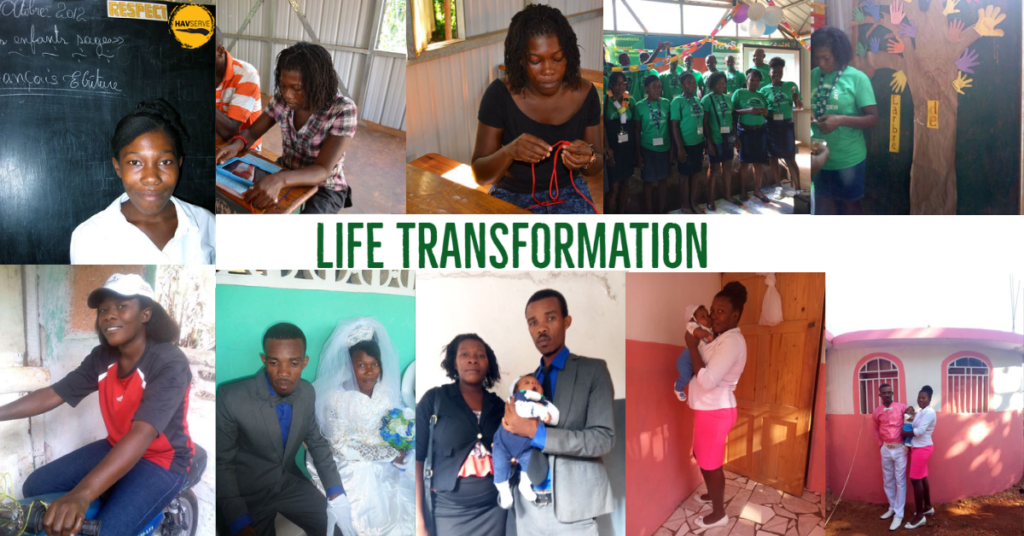As children, many of us faced challenges in our educational journey. From waking up early in the morning, to dealing with the stress of homework loads and examinations – let’s be honest – it was not a pleasure! But being serious, please take a while and try to imagine – how would our lives look like right now if we had not graduated from primary school? Would we be the same person?
It is indisputable that education shapes us as human beings. While attending school, be it primary, secondary, or university education, we not only get to know book facts, but also learn how to operate in a community of people, how to achieve goals, and how to deal with successes and disappointments; also, we make friends and we discover our strengths and weaknesses. School is a fundament on which we build our future.
Unfortunately, many Haitian children are deprived of this fundament. And this is not their choice.
While the Haitian Constitution theoretically stipulates the right to free education for everyone, the reality is cruel. According to analyses (e.g. by Pulitzer Center on Crisis Responding), the government is not able to meet the needs of the population and the 10% of the federal budget spent on elementary and secondary schools is not enough. Only 21.5% of the population receive a secondary level education and 1.1% graduate from a university. Almost 33% of children between the ages of 6 and 12 (500,000 children) do not attend school at all. This percentage is even higher (40%) for children in the age 5-15, which accounts for approximately one million children.
Facilitating accessible quality education in Haiti is a multifaceted process, which requires actions in many different spheres simultaneously. Not only is there a lack of qualified teachers and school facilities, but also a problem with unemployment and underemployment. This causes many parents to face a serious challenge in covering the costs of their children’s schooling. In turn, the lack of education becomes a big impediment to finding a decent job in the future. Children living in the rural areas are particularly disadvantaged. The earthquake that struck Haiti in 2010, to a large extent, exacerbated the already poor condition of the country.
As various problems reinforce each other, there is a need for a joint comprehensive action, which will break the vicious circle and place the country o
n a path of sustainable human development. Education is not only the aim in itself. It is also a prerequisite which will facilitate further progress including economic growth, poverty reduction, and population health. There is still much to do. According to the latest United Nations Human Development Index ranking from March 14th, Haiti ranked 161 of 185 countries: http://hdrstats.undp.org/en/countries/profiles/hti.html, meaning that it is one of the least developed countries in the world.
So, if there is something you think you could do to influence the future of Haitian people, please do not hesitate longer to implement it. Please take action, be it a sponsorship for a rural child, an idea for income-generating activity for its parents, or a design for educational training or your own hands to build a school – It will not only change the life of a child in Haiti, but it will also enrich your own.





